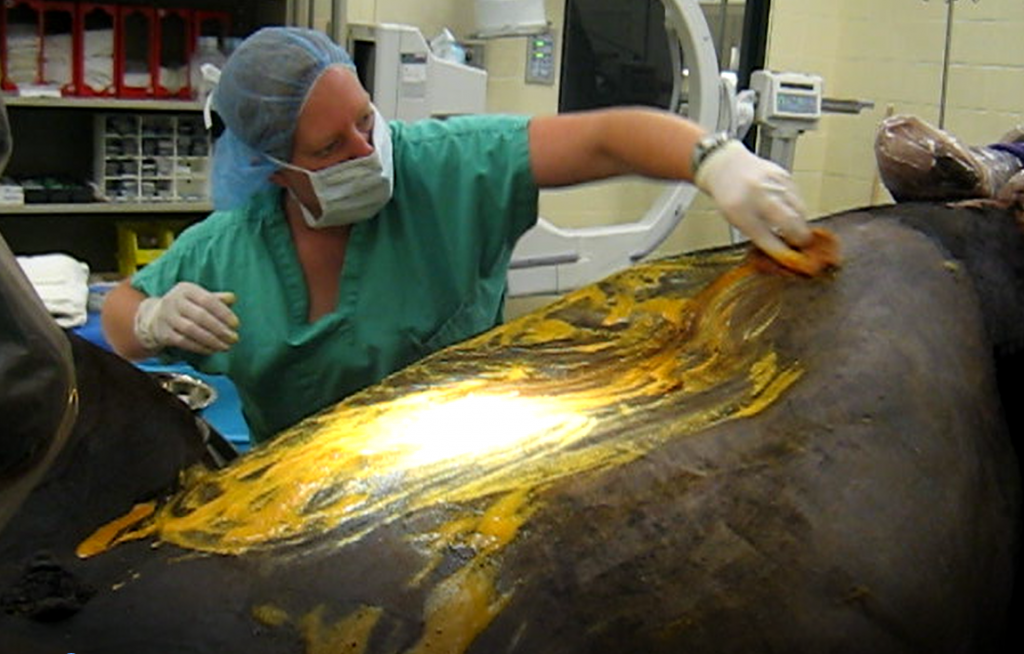Equine Colic
Indications for surgery
The decision for surgery can be challenging. It often involves multiple factors and trends over time, in addition to the client goals and willingness. If surgery is indicated but is not an option for the client, euthanasia is probably indicated.
These are indications for surgery:
- Persistent pain, even after appropriate analgesics.
- If you can’t control the pain, the horse needs surgery or needs euthanasia.
- Rapid physiologic deterioration
- Again, it needs surgery or euthanasia. No animal should die on its own. We have the option to end suffering and should attempt to do so.
- Heart rate >100 and/or PCV >50 indicate major physiologic deterioration
- Persistent reflux + pain
- Persistent reflux may respond to medical therapy if it has proximal enteritis. Those horses tend to be depressed rather than painful. If the horse is refluxing and remains painful after the reflux is removed, it probably needs surgery
- Lack of manure and GI sounds despite rehydration
- Surgery is recommended even if you don’t find another reason for surgery if it isn’t getting better despite appropriate therapy
- Abnormal rectal combined with lack of response to treatment
- Some displacements will self correct. But surgery can fix them faster.
- Serosanguinous abdominocentesis
- This indicates dead bowel. Remember you might have dead bowel with normal abdominal fluid.
- Enterolith identified
- These are unlikely to pass on their own (occasionally you can see rocks passed in the manure by mini horses due to their propensity to make these; however, if the horse is colicking, it needs surgery).
Peek inside colic surgery
Prep time! Colic surgery is generally performed with the horse in dorsal recumbency

Colic exploration –youtube video–
Prognosis
Prognosis decreases with elevated hematocrit (especially at the 49-50% level) and with elevated heart rate. Kos et al reported that the likelihood of a strangulating small intestinal lesion was high if the horse did not respond to analgesics and the PCV rose >48% in a short interval of time. High lactate levels that keep rising despite fluid therapy also indicate poor prognosis.
Key Takeaways
If you can’t control the pain or the horse isn’t responding to treatment, it needs surgery or euthanasia.
PCV >50 and HR >100 indicate a poorer prognosis even with surgery
Lowered survival rates were seen in horses with HR > 61, RR > 29, low total calcium, blood lactate >2.1, an abnormal rectal or abnormal ultrasound when these were used in a colic survival score.
Resources
Updates on Diagnosis and Management of Colic in the Field and Criteria for Referral, 2023 VCNA- good review of rectal palpation and criteria for referral
Early Identification of Intestinal Strangulation. Vet Clin Equine 39 (2023) 211–227
Exploratory Celiotomy in the Horse Secondary to Acute Colic: A Review of Indications and Success Rates.Topics in Companion Animal Medicine Volume 34, March 2019, Pages 1-9- even has algorithms!
Packed cell volume and heart rate to predict medical and surgical cases and their short-term survival in horses with gastrointestinal-induced colic. Kos et al, CVJ 2022; 63:365-372
reddish color due to blood contamination

